
 Memorial Day is a different kind of day, because it is not a holiday of celebration, but rather a day remembrance. We cannot celebrate this day, because it is about honoring those soldiers who went to war and didn’t make it back. It was the ultimate sacrifice. As the saying goes concerning soldiers, “all gave some, but some gave all!” When a soldier goes to war, they know. They are very aware that the possibility exists that they will not come back home. They know that their sacrifice might be the ultimate sacrifice. They want to make it home, but they know it may not be. Today is about those soldiers who did not make it home.
Memorial Day is a different kind of day, because it is not a holiday of celebration, but rather a day remembrance. We cannot celebrate this day, because it is about honoring those soldiers who went to war and didn’t make it back. It was the ultimate sacrifice. As the saying goes concerning soldiers, “all gave some, but some gave all!” When a soldier goes to war, they know. They are very aware that the possibility exists that they will not come back home. They know that their sacrifice might be the ultimate sacrifice. They want to make it home, but they know it may not be. Today is about those soldiers who did not make it home. 
I doubt if there are many families that can say that they have never lost a soldier in battle, but while I don’t specifically know of any in my family, I’m sure there are some back there a way. There have been many wars, and with each one examined, comes the increased chance of having a relative who dies at war. It doesn’t matter anyway, because Memorial Day is a day to honor those who gave all, whether they are related to us or not. Their sacrifice is what makes us free today. They fought for people they didn’t even know, gave up time with the family they loved, and died in a place they didn’t want to be. That is the epitome of bravery and courage.
Some of them, including my uncle, Jim Richards’ brother Dale Richards never left the place they died. Dale fought in Normandy, France, and that is where he is to this day. The people of France are so grateful for the soldiers who fought and died over there, that they keep the graves looking beautiful. It’s nice to know that there are people who continue to show their appreciation for those men who “gave all” for them. Their sacrifice should never be forgotten. Their families can certainly never forget. They have had to go forward with their lives without the love and support of the soldier that went to war and never came home. That soldier had 
 potential. They could have been anything they wanted to be, but instead, they chose to give their life to ensure the freedom of other human beings. Today, we honor all of those men who “gave all” for us and so many others. We thank you for your service, and we honor your memory. God bless you all, from a grateful nation.
potential. They could have been anything they wanted to be, but instead, they chose to give their life to ensure the freedom of other human beings. Today, we honor all of those men who “gave all” for us and so many others. We thank you for your service, and we honor your memory. God bless you all, from a grateful nation.
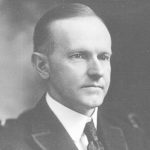 After World War I ended, war weary Americans decided that we needed to isolate ourselves from the rest of the world to a degree, in order to protect ourselves. Of course, that didn’t stop people from other countries from wanting to immigrate to the United States. The Johnson-Reed Immigration Act reflected that desire. Americans wanted to push back and distance ourselves from Europe amid growing fears of the spread of communist ideas. The new law seemed the best way to accomplish that. Unfortunately, the law also reflected the pervasiveness of racial discrimination in American society at the time. As more and more largely unskilled and uneducated immigrants tried to come into America, many Americans saw the enormous influx of immigrants during the early 1900s as causing unfair competition for jobs and land.
After World War I ended, war weary Americans decided that we needed to isolate ourselves from the rest of the world to a degree, in order to protect ourselves. Of course, that didn’t stop people from other countries from wanting to immigrate to the United States. The Johnson-Reed Immigration Act reflected that desire. Americans wanted to push back and distance ourselves from Europe amid growing fears of the spread of communist ideas. The new law seemed the best way to accomplish that. Unfortunately, the law also reflected the pervasiveness of racial discrimination in American society at the time. As more and more largely unskilled and uneducated immigrants tried to come into America, many Americans saw the enormous influx of immigrants during the early 1900s as causing unfair competition for jobs and land.
Under the new law, immigration was to remain open to those with a “college education and/or special skills, but entry was denied disproportionately to Eastern and Southern Europeans and Japanese.” At the same time, the legislation allowed for more immigration from Northern European nations such as Britain, Ireland, and Scandinavian countries. The law also set a quota that limited immigration to two percent of any given nation’s residents already in the US as of 1890, a provision designed to maintain America’s largely Northern European racial composition. In 1927, the “two percent rule” was eliminated and a cap of 150,000 total immigrants annually was established. While this was more fair all around, it particularly angered Japan. In 1907, Japan and US President Theodore Roosevelt had created a “Gentlemen’s Agreement,” which included more liberal immigration quotas for Japan. Of course, that was unfair to other nations looking to send immigrants to the United States. Strong US agricultural and labor interests, particularly from California, had already pushed through a form of exclusionary laws against Japanese immigrants by 1924, so they favored the more restrictive legislation signed by Coolidge.
Of course, the Japanese government felt that the American law as an insult and protested by declaring May 26  a “National Day of Humiliation” in Japan. With that, Japan experienced a wave of anti-American sentiment, inspiring a Japanese citizen to commit suicide outside the American embassy in Tokyo in protest. That created more anti-American sentiment, but in the end, it made no difference. On May 26, 1924, President Calvin Coolidge signed the Immigration Act of 1924 into law. It was the most stringent and possibly the most controversial US immigration policy in the nation’s history up to that time. Despite becoming known for such isolationist legislation, Coolidge also established the Statue of Liberty as a national monument in 1924.
a “National Day of Humiliation” in Japan. With that, Japan experienced a wave of anti-American sentiment, inspiring a Japanese citizen to commit suicide outside the American embassy in Tokyo in protest. That created more anti-American sentiment, but in the end, it made no difference. On May 26, 1924, President Calvin Coolidge signed the Immigration Act of 1924 into law. It was the most stringent and possibly the most controversial US immigration policy in the nation’s history up to that time. Despite becoming known for such isolationist legislation, Coolidge also established the Statue of Liberty as a national monument in 1924.

 My niece, Cassie Franklin has been enjoying being a mother of three since adding the daughter, Alicen, whom she shares with her partner, Wesley Burr. Alicen has been an added blessing to their whole family. Cassie has always been a devoted mother. She loves her three children, Lucas, Zoey, and now Alicen. Lucas was born with Down Syndrome, and since that time, Cassie has been researching ways to make her family healthy. She is very much against vaccinations, as are many people these days. Since Covid, and all the issues the virus and the vaccine have been found to have, many people are leery of the vaccine.
My niece, Cassie Franklin has been enjoying being a mother of three since adding the daughter, Alicen, whom she shares with her partner, Wesley Burr. Alicen has been an added blessing to their whole family. Cassie has always been a devoted mother. She loves her three children, Lucas, Zoey, and now Alicen. Lucas was born with Down Syndrome, and since that time, Cassie has been researching ways to make her family healthy. She is very much against vaccinations, as are many people these days. Since Covid, and all the issues the virus and the vaccine have been found to have, many people are leery of the vaccine.
Cassie has had a couple of businesses in which she makes candles and beautiful resin creations, like dishes, bowls, trays, and even jewelry. She is very creative, and her creations are absolutely beautiful. Cassie is also an excellent photographer. Her photography started with her own children, and that developed into a business of photography. She also does exceptional landscape photography. Of course, being from Wyoming, most of her landscapes are centered around our great state.
The last few years have been a bit difficult for Cassie. Her mother, Rachel Schulenberg, with whom she was very close, passed away on January 19, 2021. Cassie and her brothers, Riley Birey and Tucker Schulenberg miss their mom very much. Cassie is so much her mom’s mini me, that they could actually be twins. Every time I see Cassie, I can’t help but see her mom too. Cassie and her mom practically grew up together. Cassie was the child of her mom’s youth, and Rachel was an excellent single parent. It was so hard to lose Rachel when she was so young, and we all feel the loss deeply. 

Cassie is working on building a new life with her partner, Wesley Burr, and children, Lucas and Zoey Iverson, and Alicen Burr. They have their own business called Back to Back Cleaning Company. They do everything from yards, to houses, to cars, and probably much more. From what I understand, no job is too big or too small. I hope their business venture is a great success. Today is Cassie’s birthday. Happy birthday Cassie!! Have a great day!! We love you!!
 There are many diseases that can become an epidemic, but I never expected laughter to be one of the. After all, isn’t laughter a good thing? It is known as the “best medicine” as far as I have ever heard. Nevertheless, I suppose that one can have too much of a good thing. Such was the case on January 30, 1962, in or near the village of Kashasha on the western coast of Lake Victoria in Tanganyika (which, once united with Zanzibar, became the modern nation of Tanzania) near the border with Uganda. On that day the Tanganyika laughter epidemic of 1962 began. It was then that the outbreak that was categorized as an outbreak of mass hysteria, or mass psychogenic illness (MPI), was rumored to have occurred.
There are many diseases that can become an epidemic, but I never expected laughter to be one of the. After all, isn’t laughter a good thing? It is known as the “best medicine” as far as I have ever heard. Nevertheless, I suppose that one can have too much of a good thing. Such was the case on January 30, 1962, in or near the village of Kashasha on the western coast of Lake Victoria in Tanganyika (which, once united with Zanzibar, became the modern nation of Tanzania) near the border with Uganda. On that day the Tanganyika laughter epidemic of 1962 began. It was then that the outbreak that was categorized as an outbreak of mass hysteria, or mass psychogenic illness (MPI), was rumored to have occurred.
The laughter epidemic began at a mission-run boarding school for girls in Kashasha. It started with three girls and quickly spread throughout the school, affecting 95 of the 159 pupils between the ages of 12 and 18. I wonder if the teacher thought the girls were just trying to cause trouble or disrupt classes? The symptoms lasted from a few hours to as much as 16 days, with the average being around 7 days. Strangely, the teaching staff was not affected, other than to report that students were unable to concentrate on their lessons. All told, the first outbreak in Kashasha lasted about 48 days. It was just too long to be able to successfully run the school, so the school was forced to close on March 18, 1962. Unbelievably, a second phase of the outbreak began when the school reopened on May 21, 1962. This second phase of the outbreak affected an additional 57 pupils. The all-girl boarding school reclosed at the end of June.
You might think that the girls were just having a great time messing with their teachers, but the epidemic spread to Nshamba of the Muleba District, a village 55 miles west of Bukoba, where several of the girls lived. In  April and May 1962, 217 villagers, mostly young people had laughing attacks over the course of 34 days. In a crazy twist, the Kashasha school was sued for “allowing” the children and their parents to transmit it to the surrounding area. In June, the laughing epidemic spread to Ramashenye girls’ middle school, affecting 48 girls. Additional schools and the Kanyangereka village were also affected to some degree. About 18 months after it started, the Laughing epidemic simply died off. It was contained to the areas within a 100-mile radius of Bukoba. In all, 14 schools were shut down and 1000 people were affected.
April and May 1962, 217 villagers, mostly young people had laughing attacks over the course of 34 days. In a crazy twist, the Kashasha school was sued for “allowing” the children and their parents to transmit it to the surrounding area. In June, the laughing epidemic spread to Ramashenye girls’ middle school, affecting 48 girls. Additional schools and the Kanyangereka village were also affected to some degree. About 18 months after it started, the Laughing epidemic simply died off. It was contained to the areas within a 100-mile radius of Bukoba. In all, 14 schools were shut down and 1000 people were affected.
Symptoms of the Tanganyika “laughter epidemic” included laughter and crying, beside general restlessness and pain, as well as fainting, respiratory problems, and rashes. Contrary to the name, this was a very really epidemic with very real health concerns. Many of the symptoms experienced were stress-induced due to various external factors. This kind of stress and anxiety provokes mass hysteria outbreaks, which are reactions to perceived threats, cultural transitions, instances of uncertainty, and social stressors. You would think that these kinds of stressors would be common and happen to people every day. Maybe they were, but for whatever reason, this time, these stressors seemed much worse to those suffering with them. On top of that, the majority of the population affected by this epidemic were young people and adolescent children. The outbreak has been attributed to the young not having the appropriate coping skills to manage such stresses and anxieties. In addition to those stressors, the young people have a need for acceptance and are eager to blend into a group, making them vulnerable to “influence” contagion. Influence contagion refers to “the subtle and sometimes unwitting spread of emotions or behaviors from one individual to others. It occurs when people  influence each other’s thoughts, feelings, or actions without necessarily being aware of it.”
influence each other’s thoughts, feelings, or actions without necessarily being aware of it.”
Basically, in this cast, linguist Christian F Hempelmann theorized that the episode was stress-induced. “In 1962, Tanganyika had just won its independence, he said, and students had reported feeling stressed because of higher expectations by teachers and parents.” MPI, he says, usually occurs in people without a lot of power. “MPI is a last resort for people of a low status. It’s an easy way for them to express that something is wrong.” Whatever the case may be, the “laughter epidemic” ended up being a very real phenomenon.
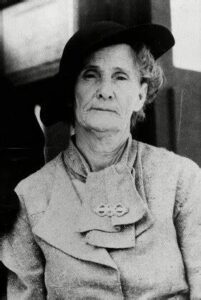
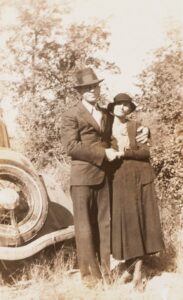 As sometimes happens, children grow up and start hanging out with the wrong crowd. Soon they are in trouble, and it falls to their parents to get them back on the right track. So, what if their parents got them on the wrong track in the first place? Such, it seems was the case with Clyde Barrow and Bonnie Parker, better known as Bonnie and Clyde. No one really knew about the inner workings of Bonnie and Clyde’s gang of thugs. Still, the evidence was mounting, even if the payoffs to the police kept most of that information from getting to the people who needed it.
As sometimes happens, children grow up and start hanging out with the wrong crowd. Soon they are in trouble, and it falls to their parents to get them back on the right track. So, what if their parents got them on the wrong track in the first place? Such, it seems was the case with Clyde Barrow and Bonnie Parker, better known as Bonnie and Clyde. No one really knew about the inner workings of Bonnie and Clyde’s gang of thugs. Still, the evidence was mounting, even if the payoffs to the police kept most of that information from getting to the people who needed it.
After Bonnie and Clyde, as well as Clyde’s brother Marvin “Buck” Barrow were killed, the US Government began their investigation against most of the Barrow clan, including Clyde Barrow’s mom, Cumie Barrow. In all, more than a dozen family members were put on trial. Strangely, Clyde Barrow’s dad, Henry was not among then. The main focus was on Clyde’s mom, Cumie Barrow. During his closing argument, US attorney for the Northern District of Texas, Clyde O Eastus made a surprising allegation. Pointing at Clyde’s mother, Cumie Barrow, Eastus roared: “She is the ringleader in this conspiracy!” Of course, he was right. I find it odd that she had been given a Hebrew name. If you recall, during one of His miracles, Jesus said to a young girl who had died, “Talitha Cumi” which means “Young girl, arise.” Cumie’s parents turned it around a little and changed the spelling of Cumi to Cumie, but the meaning is still there, just translated “Arise, young girl.” Ironically, Cumie did arise, but it was not to do good, nor was it in any way miraculous, but rather pure evil.
Eastus was probably embellishing his point for the Dallas jury a little bit, by putting Cumie front and center, but he did so because she admitted meeting regularly with the fugitives and was known to provide them with food, clothing and other comforts. Still, when we look back on Bonnie and Clyde’s history, the claims made by Eastus were likely spot on. Cumie was in this a deep as anyone, and especially as deep as Bonnie and Clyde. Reports indicate that Henry and Cumie always lived modestly in their little house, running their service station, and for all intents and purposes not possessing any large amounts of money. It is said that Bonnie and Buck’s wife, Blanche gave some money to their mothers, but the bulk of the money the men stole went to Cumie, to be managed and doled out as needed. It mostly went to the boys and their partners, and to the police, judges, and anyone else that Cumie needed to buy off to save her sons from going to jail. Cumie truly was the woman behind Clyde Barrow.
The police and judges in that era were often under paid and under trained, so it was much easier to bribe them, and Cumie would do whatever it took. Cumie worked very hard to paint herself as the loving mother, who was just looking out for her sone. She was almost certainly more complicit than that. Cumie Walker was born near Swift, Texas, in 1874. She married Henry Barrow just after she turned 17. She was far more literate than her husband, who had been sickly and never went to school. The couple started farming, but they were unsuccessful. As their family grew, Cumie became savvy in survival skills. In 1922 they moved to Dallas and Henry began peddling scrap.
In early 1930, he met and fell head over heels for Bonnie Parker, an animated, petite blond who was separated from her teen husband. Just a few weeks later, though, Clyde was arrested and eventually sent to Waco, Texas, where he was quickly tried and convicted for several thefts and burglaries. Authorities in Houston then blamed him for a murder several months before. With Clyde facing 14 years in prison and a murder charge, Cumie gave an interview to the Waco News-Tribune, insisting he was in Dallas, not Houston at the time of the murder. She attributed his troubles to falling in with a bad group of young men and noted, correctly, that he had previously been charged, but never convicted, of a crime. She also told a whopper: “Clyde was just 18 last Monday.” In reality, he was at least two years older than that. Nevertheless, she knew that the state tended to be more lenient with teens, so she did what she had to do. The reality is that he was likely 21.
The murder charge was dropped when another suspect emerged. But when Clyde arrived at the state penitentiary to serve his sentence, he listed his age as 18. Then Cumie told an even bigger lie. She said that her son was needed at home, because she was widowed, and he was needed to help provide for the family. She and Henry had moved their tiny hand-built house to a West Dallas lot where Henry ran a modest filling station from a front room. Henry Barrow was very much alive.
The corruption in those days was definitely cringeworthy. Either Cumie or her lawyers also collected recommendation letters from the sheriff who held Clyde in the Waco jail, the judge who sentenced him, and other officials who supported his release. He should never have been released, and the people he murdered after being released might have lived full lives, had he not been released. Nevertheless, the state pardon board concurred, recommending his parole because “Barrow was only 18 years old when he got into his trouble,” and he would go home to “support and care for” his mother. Of course, Clyde did support his mother, but not by honest means. Within a year, he was linked to at least four murders, some kidnappings, and all kinds of robberies. Still, his mother was quick to defend him, portraying him as “a kind son who came by the gas station just after Christmas to give her a hug and kiss.” She worried aloud that “We may hear any minute that he’s dead.” She claimed that she asked him if he had killed anyone, and he promptly told her, “Mother, I haven’t never done anything as bad as kill a man.” She insisted, “Everybody likes Clyde, you know,” sharing some family photos of her son. Looking at one of them, she sobbed. “Clyde…isn’t a… murderer.”
By July 1933, her son Buck was dying from injuries suffered in two shootouts, including a bullet to his head. Cumie was devastated. She immediately drove with several family members to Iowa. Again, she stood by Clyde, refusing to urge him to turn himself in. She knew that if he surrendered, he would almost certainly be executed. She said, and if he didn’t surrender, officers would likely shoot to kill. “So, I’m going to let him live his last few days the way he wants to.” Bonnie and Clyde were killed on May 23, 1934.
In an early 1935 trial, after closing arguments, the all-male jury found everyone guilty. Even though prosecutor Eastus had condemned Cumie Barrow, the lenient Judge William Atwell struggled to sentence her. Her influence still held firm. Finally, he said, “Perhaps sixty days in jail will suffice.” Then, he asked Cumie, “What do you think of the sentence? Is it fair?” Her eyes red from crying, Cumie looked at him, her hands clasped together. S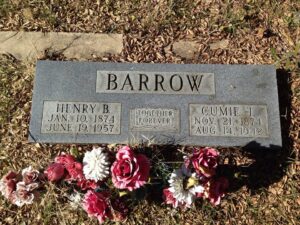
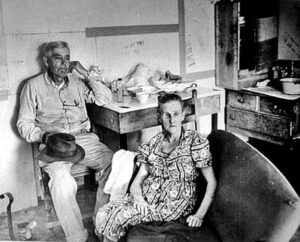 he implored, “Judge, won’t thirty days be long enough? I am needed at home.” And in true corruption style, the judge said, “Thirty days in jail.” Cumie died August 14, 1942, at home, after being sick for three or four weeks. She was 67 years old. Of her seven children, Buck and Clyde were dead, two daughters who lived in Dallas had no police records, and the other three were in prison. What a hideous legacy she left.
he implored, “Judge, won’t thirty days be long enough? I am needed at home.” And in true corruption style, the judge said, “Thirty days in jail.” Cumie died August 14, 1942, at home, after being sick for three or four weeks. She was 67 years old. Of her seven children, Buck and Clyde were dead, two daughters who lived in Dallas had no police records, and the other three were in prison. What a hideous legacy she left.

 Like most people have, whether they call it that or not, my grandnephew, Xander Spethman had a bucket list and goals for the year before he turned 21. He accomplished most of those goals. He was able to travel outside of the United States, taking a trip with his girlfriend, Alli Simpson, and her family, to Jamaica. During that trip, another item on his list was fulfilled when he saw the ocean for the first time. They had a great trip, going snorkeling, parasailing, zip lining, trying new foods, and experiencing a different culture. Jamaica is a fun place to visit. It’s always in party mode, and they had an amazing time.
Like most people have, whether they call it that or not, my grandnephew, Xander Spethman had a bucket list and goals for the year before he turned 21. He accomplished most of those goals. He was able to travel outside of the United States, taking a trip with his girlfriend, Alli Simpson, and her family, to Jamaica. During that trip, another item on his list was fulfilled when he saw the ocean for the first time. They had a great trip, going snorkeling, parasailing, zip lining, trying new foods, and experiencing a different culture. Jamaica is a fun place to visit. It’s always in party mode, and they had an amazing time.
A goal that Xander set on his 20th birthday was to find a good job and work his way up the company. Xander is 
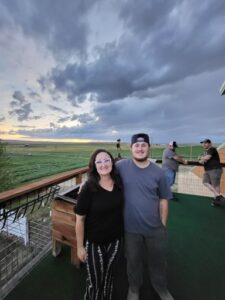 currently working for Caspar Building Systems and is coming up on his 1-year anniversary with them. Xander was able to be a part of building 12 beautiful buildings for Casper’s community. Xander loves going to work to be able to provide for his family and enjoys being able to come home and cuddle with all his babies at the end of the day. Xander is a dog dad, and his babies, of the fur variety love their daddy very much. They get all excited when he comes home and can’t wait to cuddle with him.
currently working for Caspar Building Systems and is coming up on his 1-year anniversary with them. Xander was able to be a part of building 12 beautiful buildings for Casper’s community. Xander loves going to work to be able to provide for his family and enjoys being able to come home and cuddle with all his babies at the end of the day. Xander is a dog dad, and his babies, of the fur variety love their daddy very much. They get all excited when he comes home and can’t wait to cuddle with him.
Xander and Alli are very close with his family. Xander takes being the big brother very seriously. Recently, he bought his little sister, Aleesia, a guitar, because she wants to learn how to play. While Xander and Alli have a place of their own, they spend most evenings with his family. That closeness will always be an important part of their lives. They hang out with his family, because he considers his family his friends. His mom, Jenny tells me, “Xander loves his mom, but his dad (Steve Spethman) is his hero.” Xander has grown into an amazing adult. 
 His parents often ask for his perspective on many things, including parenting. Sometimes, it’s a big help to get a young person’s perspective on one’s children. Sometimes, one child can’t make it easier to understand what another child is going through. Xander has grown into a fine young man.
His parents often ask for his perspective on many things, including parenting. Sometimes, it’s a big help to get a young person’s perspective on one’s children. Sometimes, one child can’t make it easier to understand what another child is going through. Xander has grown into a fine young man.
The end of the summer will find Xander and Alli making yet another big change. They will be moving to Fort Collins, Colorado so that Alli can continue her education. This is likely to be a “culture shock” for the whole family, because they are so close. Nevertheless, Jenny tells me that she is “excited for her son to have new opportunities and to watch him grow.” We all wish them well. Today is Xander’s 21st birthday. Happy birthday Xander!! Have a great day!! We love you!!

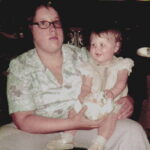 My sister-in-law, Brenda Schulenberg is a very special kind of person. She has a strong sense of fairness when it comes to how people should be treated. She also has a deep kindness toward people. Because of these two things, she is always kind to all people, regardless of the situation. I don’t say that things and situations can’t frustrate her and even produce anger, as can happen to all of us, but Brenda is mostly even tempered, and nice to people. It is a trait that has served her well all her life and will continue to do so for the rest of it.
My sister-in-law, Brenda Schulenberg is a very special kind of person. She has a strong sense of fairness when it comes to how people should be treated. She also has a deep kindness toward people. Because of these two things, she is always kind to all people, regardless of the situation. I don’t say that things and situations can’t frustrate her and even produce anger, as can happen to all of us, but Brenda is mostly even tempered, and nice to people. It is a trait that has served her well all her life and will continue to do so for the rest of it.
It’s funny how sometimes, we can step into, or almost stumble upon the job that will become our career, with little or no planning on our part. That is really what happened to Brenda. She got a job in banking right out of high school, and that job has become a career that has spanned the last 43 years. It will be the career from which she will retire in the near future. Her career in banking, 
 however, has not afforded her “banker’s hours” as most of us might think. Brenda has worked in Human Resources for a long time, and while most of us think Human Resources is all about hiring and firing, and it is, her job also takes on payroll, and tax preparation for a number of companies. With that, the traditional “banker’s hours” have a tendency to go out the window. Brenda has been known to work from 8:00 in the morning to 10:00 at night, and not on occasion. She does that quite often…especially during tax season. It’s been a wild ride, and I’m, quite sure that those hours will not be missed when she retires.
however, has not afforded her “banker’s hours” as most of us might think. Brenda has worked in Human Resources for a long time, and while most of us think Human Resources is all about hiring and firing, and it is, her job also takes on payroll, and tax preparation for a number of companies. With that, the traditional “banker’s hours” have a tendency to go out the window. Brenda has been known to work from 8:00 in the morning to 10:00 at night, and not on occasion. She does that quite often…especially during tax season. It’s been a wild ride, and I’m, quite sure that those hours will not be missed when she retires.
Brenda is a social person and loves spending time with friends and family. She has a core group of friends, but she is also a friend to many other people. People just naturally like Brenda, and that makes it so easy for her to make friends. She has been a part of my life since she was eleven years old. She became my sister-in-law 
 when she was twelve years old. After all those years, she really isn’t my sister-in-law, but rather she is my sister…and I can’t imagine life without her in it. She has been there during the best of times, and the hardest of times…those times of sickness and loss. I can’t imagine how hard it would have been to take care of her aging parents, if she and the rest of the family had not been there to help. She was so important to their care, and they were always grateful for her help. Today is Brenda’s birthday. Happy birthday Brenda!! Have a great day!! We love you!!
when she was twelve years old. After all those years, she really isn’t my sister-in-law, but rather she is my sister…and I can’t imagine life without her in it. She has been there during the best of times, and the hardest of times…those times of sickness and loss. I can’t imagine how hard it would have been to take care of her aging parents, if she and the rest of the family had not been there to help. She was so important to their care, and they were always grateful for her help. Today is Brenda’s birthday. Happy birthday Brenda!! Have a great day!! We love you!!
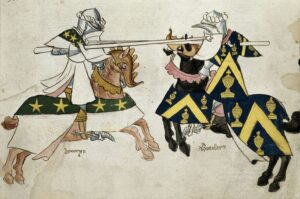
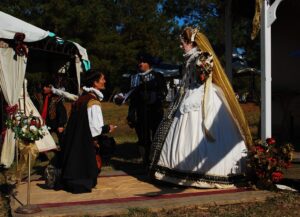 In centuries past, men could only be knighted for some kind of military bravery or prowess, but since 1917, by proclamation of King George V the reigning British monarch at the time, Britain has been awarding memberships into The Most Excellent Order of the British Empire, better known as British Order of Knighthood, to reward both civilian and military wartime service, to men and women, which makes sense since women are in the military now, and there are often civilian participants in some operations of war.
In centuries past, men could only be knighted for some kind of military bravery or prowess, but since 1917, by proclamation of King George V the reigning British monarch at the time, Britain has been awarding memberships into The Most Excellent Order of the British Empire, better known as British Order of Knighthood, to reward both civilian and military wartime service, to men and women, which makes sense since women are in the military now, and there are often civilian participants in some operations of war.
If that was the only change, it might have been ok, but in 1918, a separate military division of the order was created, that allowed persons of renown (basically celebrities) to be brought into the order as well. The five classes of both civil and military divisions, listed in descending order and conferred on men and women equally, are Knight and Dame Grand Cross (GBE), Knight and Dame Commander (KBE and DBE, respectively), Commander (CBE), Officer (OBE), and Member (MBE). Conferment of the two highest classes entails admission into knighthood, if the candidate is not already a knight or dame, and the right to the title of “Sir” or “Dame” as appropriate. (Knights and Dames Grand Cross, together with Knights of the Garter and of the Thistle, may be granted the use of supporters with their arms.) Appointments are usually made on the recommendation of the British Secretary of State for Defense and the Secretary of State for Foreign and Commonwealth Affairs. It seems strange to me that it would happen like that.
I understand that they were trying to include more people, but in doing so, it seems to me that the honor is cheapened, somehow. These days, being knighted holds a much different meaning than it used to. Nations with a monarch as their head of state would, once upon a time, issue knighthoods to their loyal subjects and foreign citizens who have done great deeds for their country. Today, you can still earn a knighthood through military prowess, but you can also earn one if your artistic, scientific, or civil service “shines greatly” upon the crown. 
 Really?? Of course, you could also be a genocidal Marxist dictator who overthrows the government and you’ll eventually be knighted…or you could just be a penguin…I mean it!!! To me, being knighted for anything other than extraordinary service to the country makes the award of little to no value. I don’t dispute these actors and others right to recognition, it’s just that knighthood doesn’t seem the place for it.
Really?? Of course, you could also be a genocidal Marxist dictator who overthrows the government and you’ll eventually be knighted…or you could just be a penguin…I mean it!!! To me, being knighted for anything other than extraordinary service to the country makes the award of little to no value. I don’t dispute these actors and others right to recognition, it’s just that knighthood doesn’t seem the place for it.

 My niece, Dustie Masterson, says of her husband Rob Masterson, “My husband is a very thoughtful man. Not just in big gestures but in the more meaningful way. He will just randomly show up at my work with my favorite coffee from my favorite coffee shop. Or he notices what I’ve been eating and makes sure that there is ALWAYS some on hand for at home and at work. He did a biggie this year though and bought me a new wedding band. I’m not a real flashy kind of girl (after all I have the best husband that’s all I really need) but he realized I was having a reaction to my ring and couldn’t wear it anymore. Off he went to hunt down a new band. He said he spent hours driving the employees crazy looking at every ring they had. He really thought they were just about over his pickiness. Until he found it, the perfect ring.” Dustie’s new ring is the most beautiful and elegant ring she has ever seen, let alone owned, and it came straight from his heart. It is a beautifully set diamond in black hills gold. No one really knows this, but Dustie absolutely loves black hills gold. She thinks she might have mentioned it when they were in the Black Hills when their 19-year-old son, Matthew was a baby. Rob has a really good memory. He not only remembers the “little” daily things, but he also remembers things from eons ago that he really doesn’t have to. Dustie says, “He does this because he is a very loving thoughtful husband. I’m so proud to say I’ve known him for 25 of his 50 years and I can’t wait for the next 50 or so.”
My niece, Dustie Masterson, says of her husband Rob Masterson, “My husband is a very thoughtful man. Not just in big gestures but in the more meaningful way. He will just randomly show up at my work with my favorite coffee from my favorite coffee shop. Or he notices what I’ve been eating and makes sure that there is ALWAYS some on hand for at home and at work. He did a biggie this year though and bought me a new wedding band. I’m not a real flashy kind of girl (after all I have the best husband that’s all I really need) but he realized I was having a reaction to my ring and couldn’t wear it anymore. Off he went to hunt down a new band. He said he spent hours driving the employees crazy looking at every ring they had. He really thought they were just about over his pickiness. Until he found it, the perfect ring.” Dustie’s new ring is the most beautiful and elegant ring she has ever seen, let alone owned, and it came straight from his heart. It is a beautifully set diamond in black hills gold. No one really knows this, but Dustie absolutely loves black hills gold. She thinks she might have mentioned it when they were in the Black Hills when their 19-year-old son, Matthew was a baby. Rob has a really good memory. He not only remembers the “little” daily things, but he also remembers things from eons ago that he really doesn’t have to. Dustie says, “He does this because he is a very loving thoughtful husband. I’m so proud to say I’ve known him for 25 of his 50 years and I can’t wait for the next 50 or so.”
Rob and Dustie have three children together, as well as a bonus daughter, Christina Masterson, for his first marriage. Their oldest daughter, Raelynn says that her dad sometimes calls her Raelynn, but usually he calls her Raelynn Dawn. It wasn’t something she really noticed until recently when we were ordering a Mother’s Day gift. She really likes that, because it’s something only her daddy does. Every time she hears him calling her, that it feels special, because he doesn’t do it with her siblings. He usually just calls them their middle names without the first names, or just their usual nicknames. Raelynn is reminded that because her dad is turning 50, he is officially halfway to 100. She says that’s hard to wrap her head around, and I would have to agree. As his aunt, I’ve known him all of those 50 years. Raelynn loves going to the shooting range with her dad to practice 

 shooting. She says, “He hasn’t said it, but I think he feels a bit better that I want to carry a gun wherever I can.” These days, that’s not a bad idea. She has been trying to spend more time with him, and even plans to learn how to sharpen knives with him because it’s something they are both interested in. It helps Rob relax knowing she can take care of herself. Recently, Rob has been taking care to hydrate more and eat healthier. He is taking better care of himself, so he can stay around for his family and be there for their important milestones. Raelynn is very proud of her dad and loves him very much. She says, “I love my dad, and the effort he is going through. It is so important and makes me so, so proud to call myself his daughter.”
shooting. She says, “He hasn’t said it, but I think he feels a bit better that I want to carry a gun wherever I can.” These days, that’s not a bad idea. She has been trying to spend more time with him, and even plans to learn how to sharpen knives with him because it’s something they are both interested in. It helps Rob relax knowing she can take care of herself. Recently, Rob has been taking care to hydrate more and eat healthier. He is taking better care of himself, so he can stay around for his family and be there for their important milestones. Raelynn is very proud of her dad and loves him very much. She says, “I love my dad, and the effort he is going through. It is so important and makes me so, so proud to call myself his daughter.”
Rob’s son, Matt says, “My Dad has always been my hero. He is such an amazing man I hope that one day I can live up to what he expects of me. He always does things for me even when I don’t ask him to. And he just puts a lot of thought behind the things he does for me. I couldn’t ask for a better Dad!” His daughter, Taylor says, In the past year, Dad has started teaching me to drive, and spend more time with us as a family. He was so calm about his knee surgery and has helped us through all the toughest times. I can say with my full heart that I love and appreciate him more than anyone could know.”
Rob is my sister, Cheryl Masterson’s only son. She says, “Robbie is a very kind-hearted man. Very even-tempered and easy to like and get along with. He always has been since the day he was born! Even as a little kid, he loved and protected his sisters, and they appreciated him so much. He teased them a lot, too, but they all loved him! He loves his wife and children the same way. He is protective of them, and he teases them, too! They all have a lot of fun together! He is also good to his mother. Early last winter, my outdoor faucet broke and was pouring out water at 2:00 in the morning. I had to call Robbie. He got up at 2:00 in the morning and 
 came over to take care of the problem for his mother! On his birthday, he will get the air conditioner going in my living room, so the house stays cool for the summer. He’s a good son, and I love him! I hope this, his 50th year is absolutely blessed beyond all he could ask or hope!” As you can see, Rob is very much loved, and his family can tell you about how special he is and how important he is to them far better than I could. Today is Rob’s 50th birthday!! Happy birthday Rob!! Have a great day!! We love you!!
came over to take care of the problem for his mother! On his birthday, he will get the air conditioner going in my living room, so the house stays cool for the summer. He’s a good son, and I love him! I hope this, his 50th year is absolutely blessed beyond all he could ask or hope!” As you can see, Rob is very much loved, and his family can tell you about how special he is and how important he is to them far better than I could. Today is Rob’s 50th birthday!! Happy birthday Rob!! Have a great day!! We love you!!

 My sister, Caryl Reed has had a busy year this year. She and her husband, Mike Reed own a 35-acre ranch west of town, and for several years now, they have been growing hay for sale. It’s a big job, with big equipment. They bought a Commercial Farm Irrigation System, which is very impressive…to those of us who live in the city anyway. That makes watering their crops so much easier. They were boarding horses for a while, but with the distance to their place, it was hard to keep the horses. They hare happy without horses for now. That might change later, I suppose, because Caryl really does like horses.
My sister, Caryl Reed has had a busy year this year. She and her husband, Mike Reed own a 35-acre ranch west of town, and for several years now, they have been growing hay for sale. It’s a big job, with big equipment. They bought a Commercial Farm Irrigation System, which is very impressive…to those of us who live in the city anyway. That makes watering their crops so much easier. They were boarding horses for a while, but with the distance to their place, it was hard to keep the horses. They hare happy without horses for now. That might change later, I suppose, because Caryl really does like horses.
In mid-November 2023, Caryl and Mike took a trip out to Oregon to visit their kids, Allen and Gaby Beach. From there, they went on a camping trip in the area. Allen and Gaby showed them some places they knew of, 
 and they showed them some places they had found. The four of them had such a nice trip, and the dogs all enjoyed it too. One of the highlights was their visit to Crater Lake, which was a favorite of our parents, Allen and Collene Spencer, but the entire trip was amazing. They visited the Redwoods and parts of California, and the Oregon coast. They had a fantastic time.
and they showed them some places they had found. The four of them had such a nice trip, and the dogs all enjoyed it too. One of the highlights was their visit to Crater Lake, which was a favorite of our parents, Allen and Collene Spencer, but the entire trip was amazing. They visited the Redwoods and parts of California, and the Oregon coast. They had a fantastic time.
Caryl and Mike feel so blessed to have been able to live on their ranch. They have wanted this for a long time. In fact, it is their retirement home, and every morning, when they get up, they feel a deep degree of blessing as they look out at the beautiful view they have been blessed with. Over the years, Caryl has lived in a number of places, such as California, Washington, and Idaho, but no place ever really felt like home until she returned to Wyoming, 
 and while she lived in Rawlins for a while, Casper was where she was born and raised, and it is the place she really calls home. For my sisters and me, having Caryl back in Casper has been a really great blessing too. When she lived in all those other places, there was always that hole in the family, where she and her family should have been. We are a close family, and we like having everyone close. Of course, that can’t always happen. Each of us have children and grandchildren that live far away, and we really miss them every day. Today is Caryl’s birthday. Happy birthday Caryl!! Have a great day!! We love you!!
and while she lived in Rawlins for a while, Casper was where she was born and raised, and it is the place she really calls home. For my sisters and me, having Caryl back in Casper has been a really great blessing too. When she lived in all those other places, there was always that hole in the family, where she and her family should have been. We are a close family, and we like having everyone close. Of course, that can’t always happen. Each of us have children and grandchildren that live far away, and we really miss them every day. Today is Caryl’s birthday. Happy birthday Caryl!! Have a great day!! We love you!!

